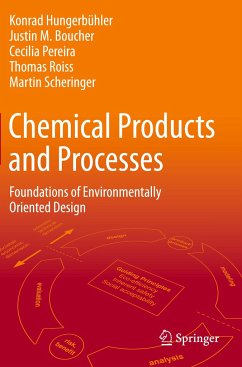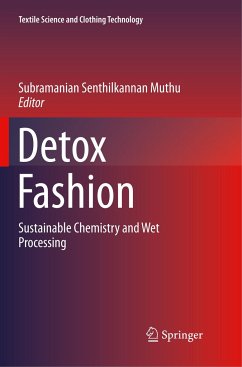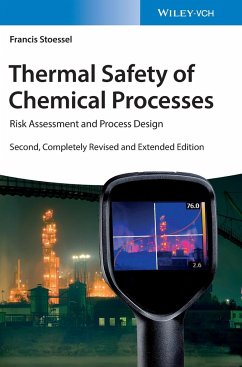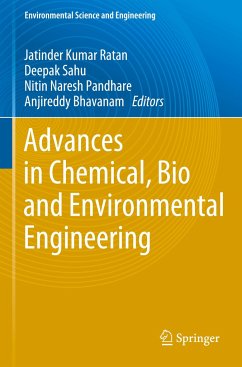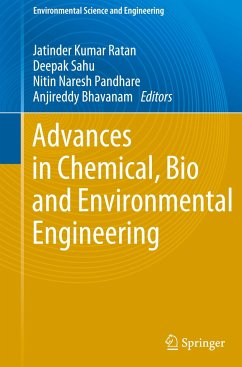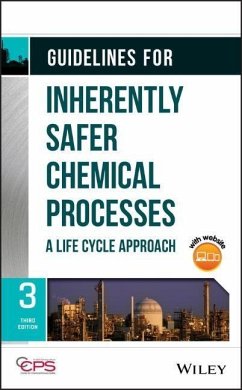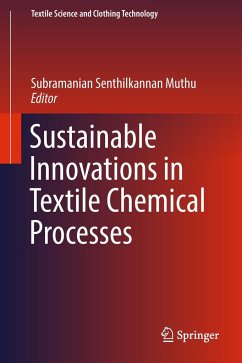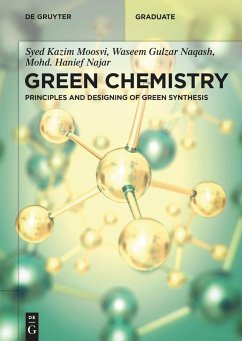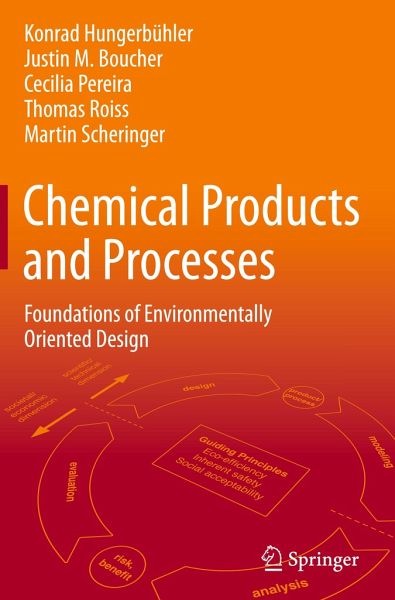
Chemical Products and Processes
Foundations of Environmentally Oriented Design
Versandkostenfrei!
Versandfertig in 6-10 Tagen
65,99 €
inkl. MwSt.
Weitere Ausgaben:

PAYBACK Punkte
33 °P sammeln!
This textbook provides both students and professionals alike with a transdisciplinary and comprehensive foundation to design responsible chemical products and processes that protect human health and the environment. It serves as a compact guide that brings together knowledge and tools from across multiple disciplines. Readers are introduced to a set of core topics with focus placed on basic technical methods and tools (including life cycle assessment, product and process risk assessment, and thermal safety concepts) as well as on important normative topics (including philosophical, societal, a...
This textbook provides both students and professionals alike with a transdisciplinary and comprehensive foundation to design responsible chemical products and processes that protect human health and the environment. It serves as a compact guide that brings together knowledge and tools from across multiple disciplines. Readers are introduced to a set of core topics with focus placed on basic technical methods and tools (including life cycle assessment, product and process risk assessment, and thermal safety concepts) as well as on important normative topics (including philosophical, societal, and business perspectives in addition to current environmental and safety legislation). Developed in collaboration with industry partners, this textbook also provides a workable, illustrative case study that guides readers through applying the fundamentals learned to the production and application of a real-world chemical product.
Building upon the success of its first German edition published in 1998, this latest edition has been significantly updated and expanded to reflect developments over the past two decades. Its publication comes at a key time when the volume and pace of global chemical production is dramatically increasing, and the rise of social media and informed citizen scientists make the dialogue with stakeholders even more important and demanding. This textbook is a valuable resource for both the current and next generation of scientists and engineers that will be tasked with addressing the many challenges and opportunities that are appearing as a result. Covering a wide range of interconnected topics at a fundamental level applicable across scientific study programs and professions, this textbook fills a need not met by many of the other more specialized textbooks currently available.
Building upon the success of its first German edition published in 1998, this latest edition has been significantly updated and expanded to reflect developments over the past two decades. Its publication comes at a key time when the volume and pace of global chemical production is dramatically increasing, and the rise of social media and informed citizen scientists make the dialogue with stakeholders even more important and demanding. This textbook is a valuable resource for both the current and next generation of scientists and engineers that will be tasked with addressing the many challenges and opportunities that are appearing as a result. Covering a wide range of interconnected topics at a fundamental level applicable across scientific study programs and professions, this textbook fills a need not met by many of the other more specialized textbooks currently available.





